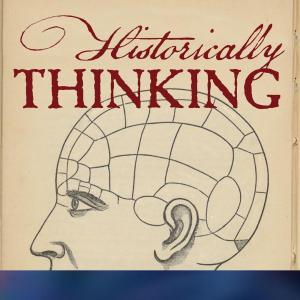Historically Thinking

Episode 115: Samurai, or, Myths and Realities of Japanese Warriors
In late 19thcentury Japan, samurai were considered an “anachronistic embarassment, unproductive and useless.” Western dress spread rapidly throughout society. Castles were demolished by local governments. Yet, today, samurai seem to be a nearly ubiquitous symbol of Japan. However many of those things that comprise that symbol—the sport of kendo, swords sharper than razors, the code of bushido—are often impositions upon the historical past. It illustrates a favorite saying of Lendol Calder, a frequent guest on this podcast: it’s not what we don’t know about history that’s the problem, it’s what we know that just isn’t so. In this case, those things we know that just aren't so have often changed the way in which foreign powers have dealt with Japan, and the way in which Japan has thought of itself. With me to discuss the samurai and their development is Michael Wert, Associate Professor of History at Marquette University. He is the author of Meiji Restoration Losers: Memory and Tokugawa Supporters in Modern Japan and most recently Samurai: A Concise History, published by Oxford University Press.






 Visit Podcast Website
Visit Podcast Website RSS Podcast Feed
RSS Podcast Feed Subscribe
Subscribe
 Add to MyCast
Add to MyCast